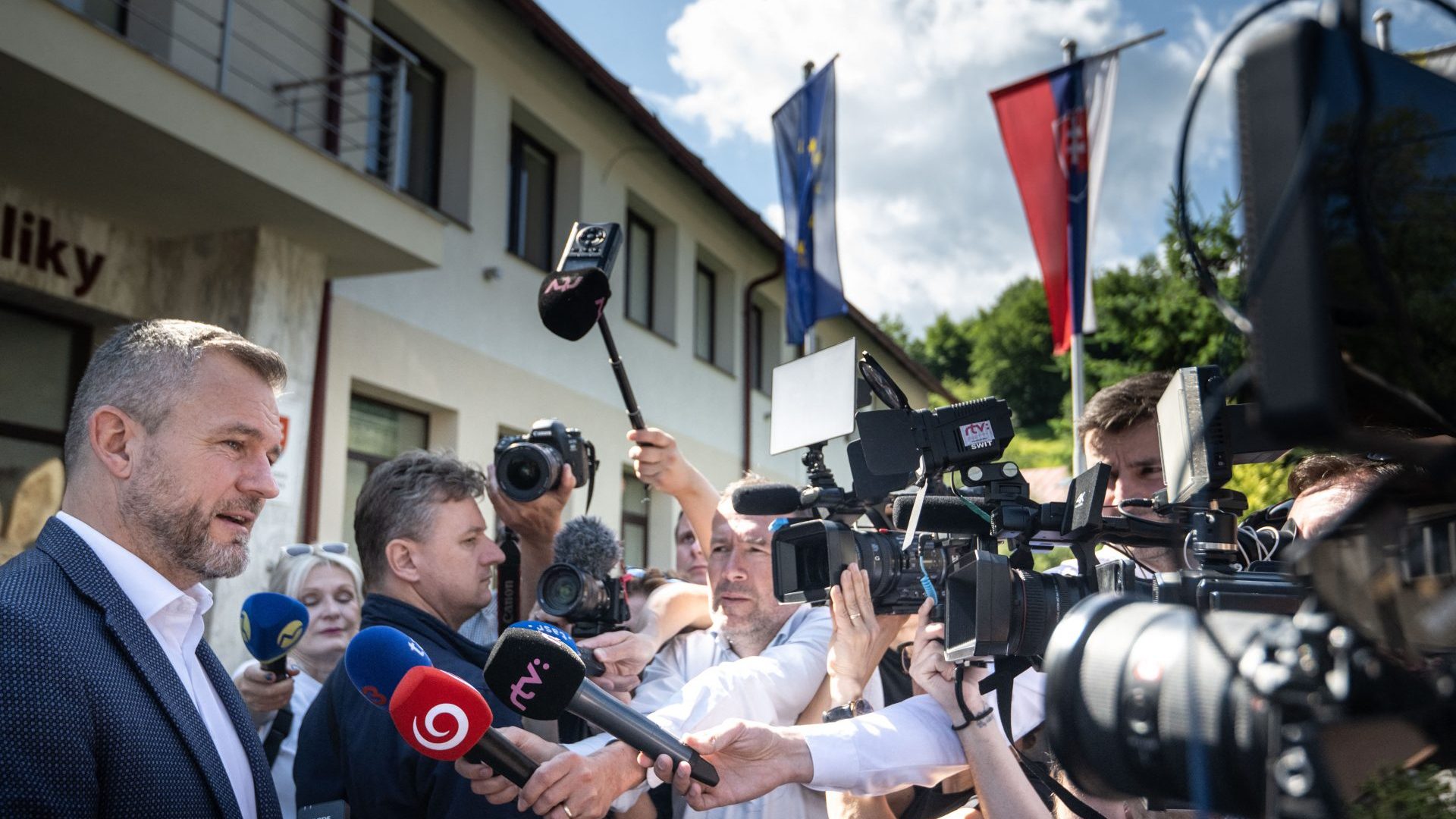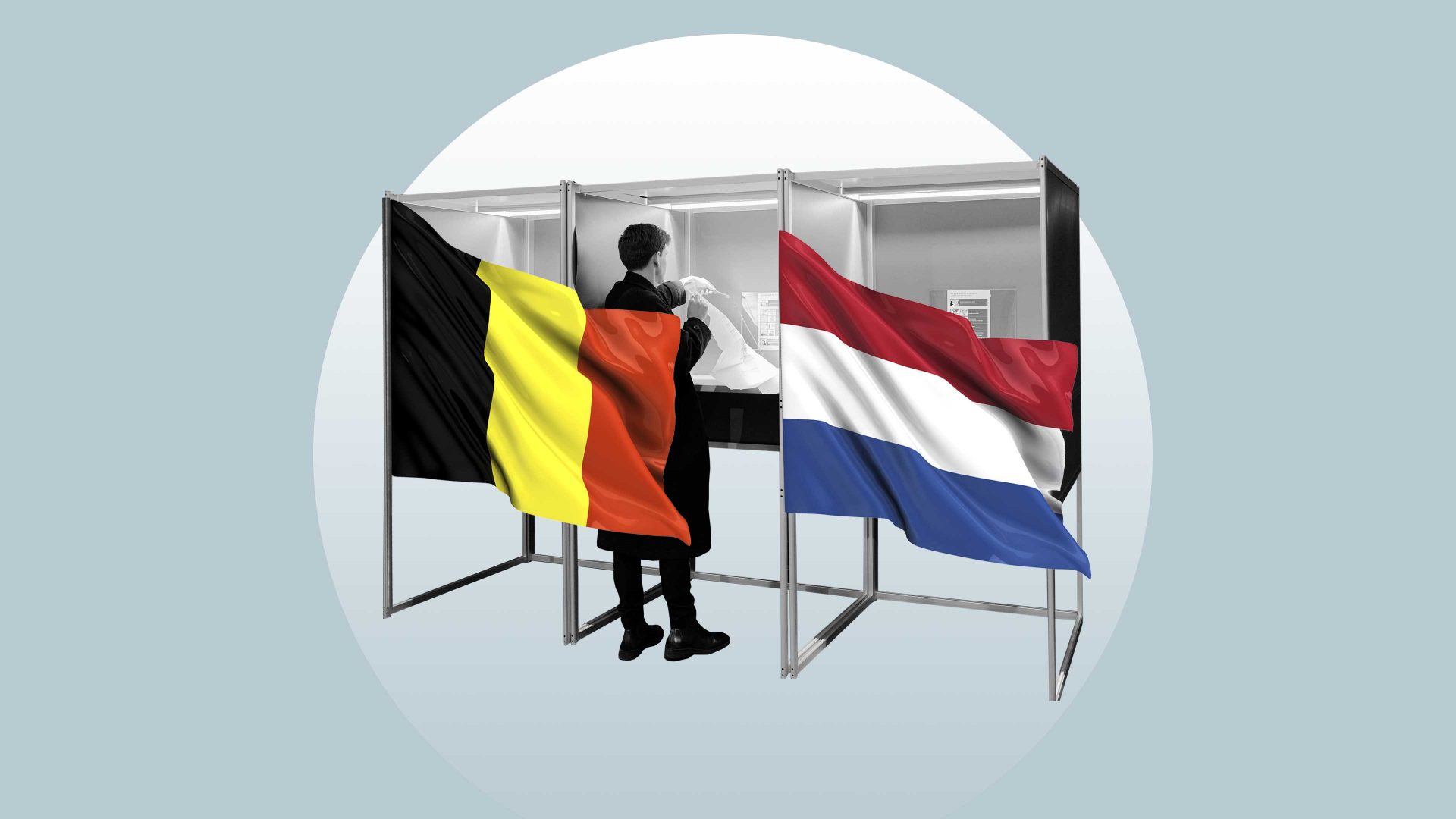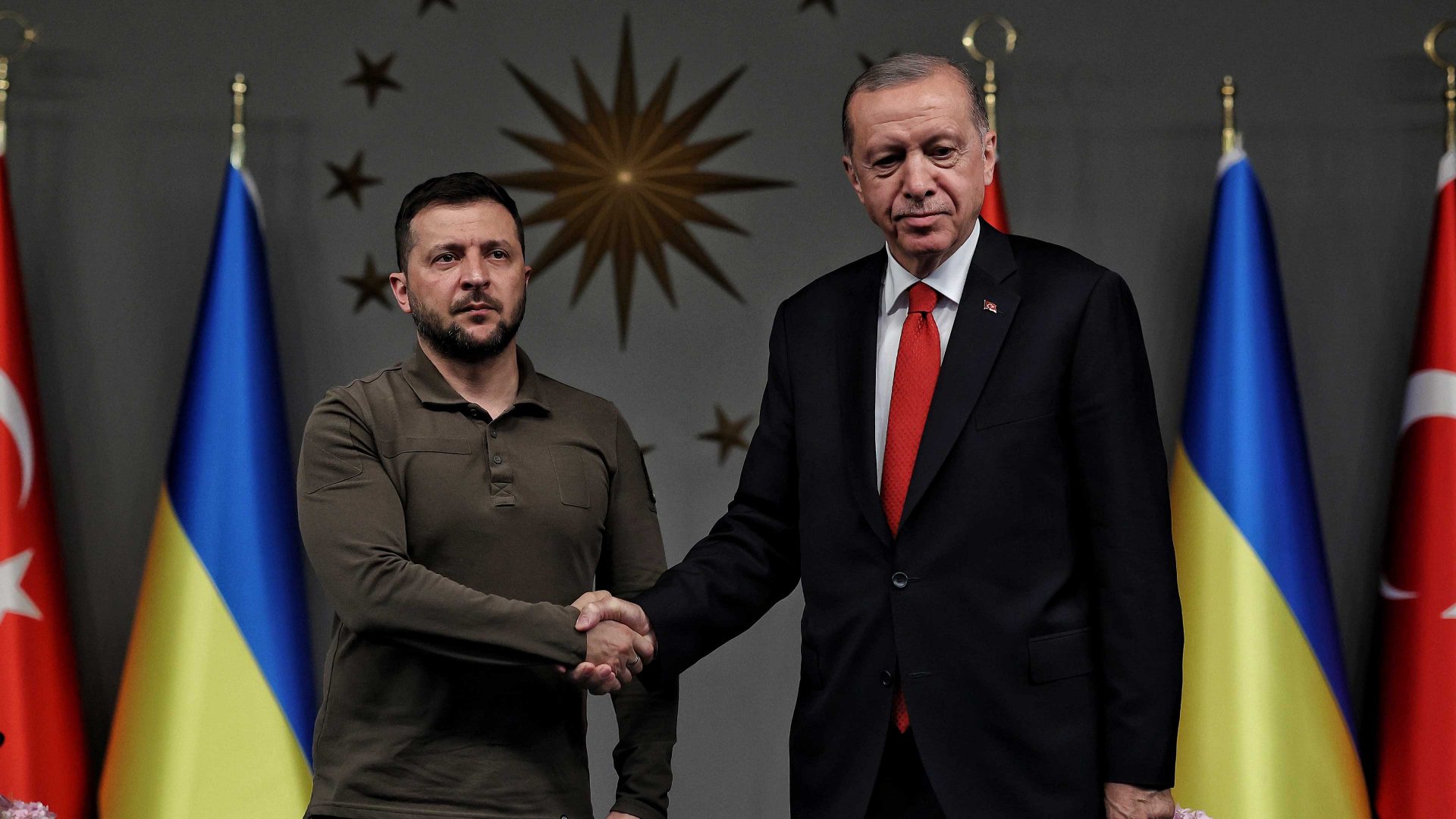In Slovakia, the European Parliamentary elections were overshadowed by an attempt to assassinate the prime minister, the populist Robert Fico. The more muted campaign changed as the shock wore off, and the drive for votes intensified.
The governing party covered its billboards with slogans supporting the wounded Robert Fico, and the prime minister delivered a defiant video speech on social media, still appearing exhausted as he recovered from several gunshot wounds. Fico’s party achieved a strong showing with 24.8%, gaining two more MEPs (for a total of five) compared to 2019, but ultimately he finished in second place.
The progressive PS party secured 27.8% of the vote, tripling the number of MEPs elected for the party five years ago.
In the past, Slovakia consistently recorded the lowest turnout across the EU’s 27 member states. This year, it achieved its highest-ever turnout at the European elections, with more than 34% of voters turning out – it is no longer the EU nation with the lowest turnout.
Between them, the opposition parties collectively won 42.5% of the vote. The right-wing liberal SaS party missed out on gaining an MEP by around a thousand votes. The governing coalition parties secured 33.8% of the vote. Seven MEPs will represent the opposition parties, while six will represent the coalition. Additionally the far-right Republika party, which failed to enter parliament last year, managed to score 12.5% in this election.
The results were particularly painful for the junior coalition partner — the nationalists (SNS). Led by its chair, Andrej Danko, they secured only 1.9% of the vote. Similarly disappointing were the results for the other coalition partner, Hlas-SD, founded by president-elect Peter Pellegrini, which received only 7.2%. This outcome is ominous for both parties. Other political groups have governed with Fico’s Smer-SDas party, and have suffered what came to be known as the “kiss of death” effect. The party of the authoritarian prime minister Vladimír Mečiar evaporated after ruling with Fico, as did the Slovak-Hungarian Most-Híd party. The SNS party also crashed out of parliament, but managed a modest recovery in 2024.
“The victory of PS is good news for Slovakia,” says Rastislav Káčer, a seasoned diplomat who served as foreign minister until just a year ago. “It demonstrates that a shift from the dominance of extreme politics represented by parties like Smer, SNS, and with certain assistance from Hlas is possible. When we tally up all the votes, the pro-European vision holds a slight majority.”
However, he also warned that “the result of extremist Republika party and the extreme tone adopted by Smer during the campaign” were both “concerning”. But despite the strong progressive showing and robust pro-European vote, it is unlikely to change the government’s policies or general character.
“Slovak society is deeply polarised, and our political divisions run deep,” said Káčer, who served as Slovak ambassador to the US and Hungary during his career. “Unfortunately, we are quite vulnerable to targeted Russian disinformation campaigns. These anti-European and anti-Western disinformation efforts, largely fueled by Russia and Hungary under Orbán’s leadership too.”
These operations, he says, “fertile ground here, especially due to support from representatives of the current government.”
“On May 15, an activist of the Slovak opposition tried to assassinate me in Handlová because of my political views,” prime minister Fico claimed in a video statement days before the polls. He spoke of the “hatred and aggression of the current opposition,” which he said was “tolerated by opinion-forming media, foreign-funded NGOs and unfortunately without any reactions from international organisations.”
Smer-SD party officials thought that the attack on Fico and his defiant message would secure them a major political win. It didn’t happen that way.
Regarding party affiliations, the progressive PS party, which had Ľudovít Ódor, a former technocrat prime minister and economist, as the lead candidate, is a member of the liberal pro-European Renew Europe fraction, while the Christian Democrats belong to the conservative EPP. It remains unclear which fraction Smer-SD and Hlas-SD will join.
To step back from it all, the results of the European elections in Slovakia indicate one thing above all – the electorate has been mobilised.



